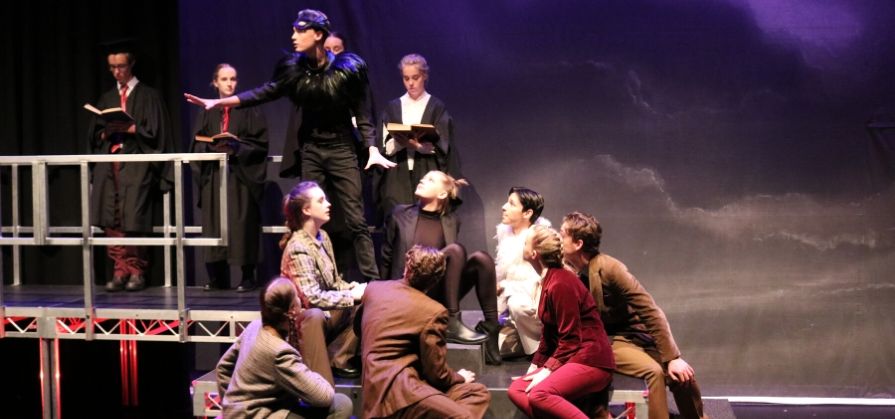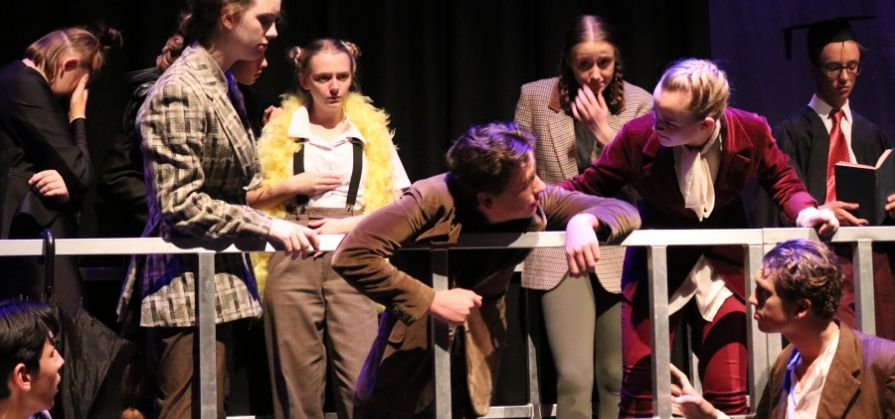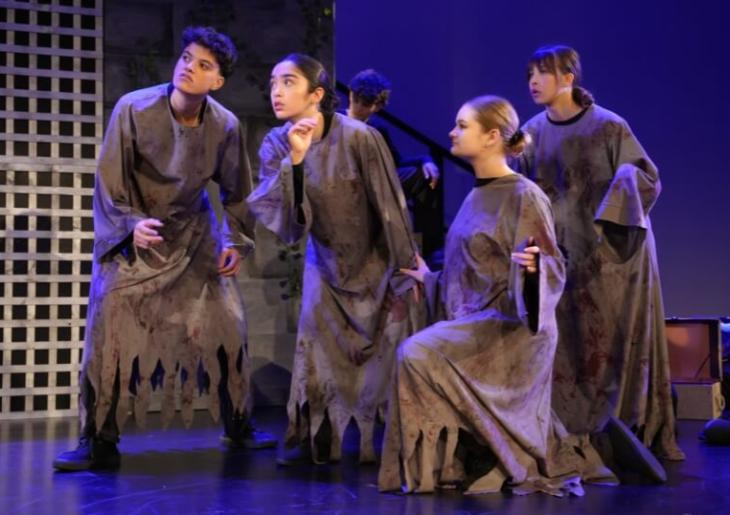Animal Farm

One of George Orwell’s greatest texts, Animal Farm is an allegorical play commenting on the political shifts of the Bolshevik revolution and its aftermath, a piece of literature in which the characters and events symbolise human truths.
When Producer and Drama teacher, Natalie Parsons-Clair announced to senior Drama students that they would be producing one of the most influential and ground-breaking novels in English literature students were excited.
Year 12 Drama captain Abbey Healey said, “We weren’t entirely familiar with the details of Animal Farm. Most of us knew it but we hadn’t studied it in great depth. We were excited to dive deep into the characters and messages and really challenge ourselves as actors.”
The stage was constructed in a unique way to give an immersive and upfront experience of the play. Danielle Stimson, Year 12 Drama captain said, “We sat the audience onstage along with the set to create an intimate performance space and build a strong connection to the actors.”
And it worked. The minimalist set design meant everything had to come from the actors and the intimate space allowed the audience to feel closely connected to the characters' moods, feelings and emotions. The dark toned lighting, shadows and haze added to the mood and atmosphere.

Danielle said, “We used high and low platforms to create an industrial barn feel. Each characters’ costume reflected their position in the play. For example, the pigs wore formal tuxes while the narrators wore academic gowns.”
A cast of 16 students and four stage crew embraced the challenging characters, the plot and the twists with great vigour, confidence and maturity.
“One of our favourite lines of the play is spoken by Clover, a stout motherly mare. It is the last sentence of the novel,” said Abbey.
“Clover says, ‘The creatures outside looked from pig to man, and from man to pig, and from pig to man again: but already it was impossible to say which was which.’ It was extremely emotional and a piercing moment in the production. The fact the pigs could not be identified from the humans truly revealed the extent of their corruption.”
While Animal Farm pointed criticism at the Stalin regime the messages are as relevant today as they were in 1940.
Added Abbey, “We only have to look at our current world leaders to understand the importance and relevance today of Animal Farm. Orwell expresses concern for the future ahead, and the continuing tensions and emerging consequences of power struggles and authoritarian figures ascending to power.”




